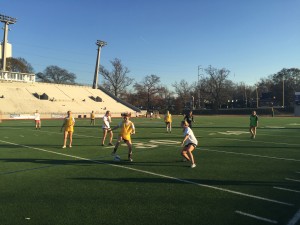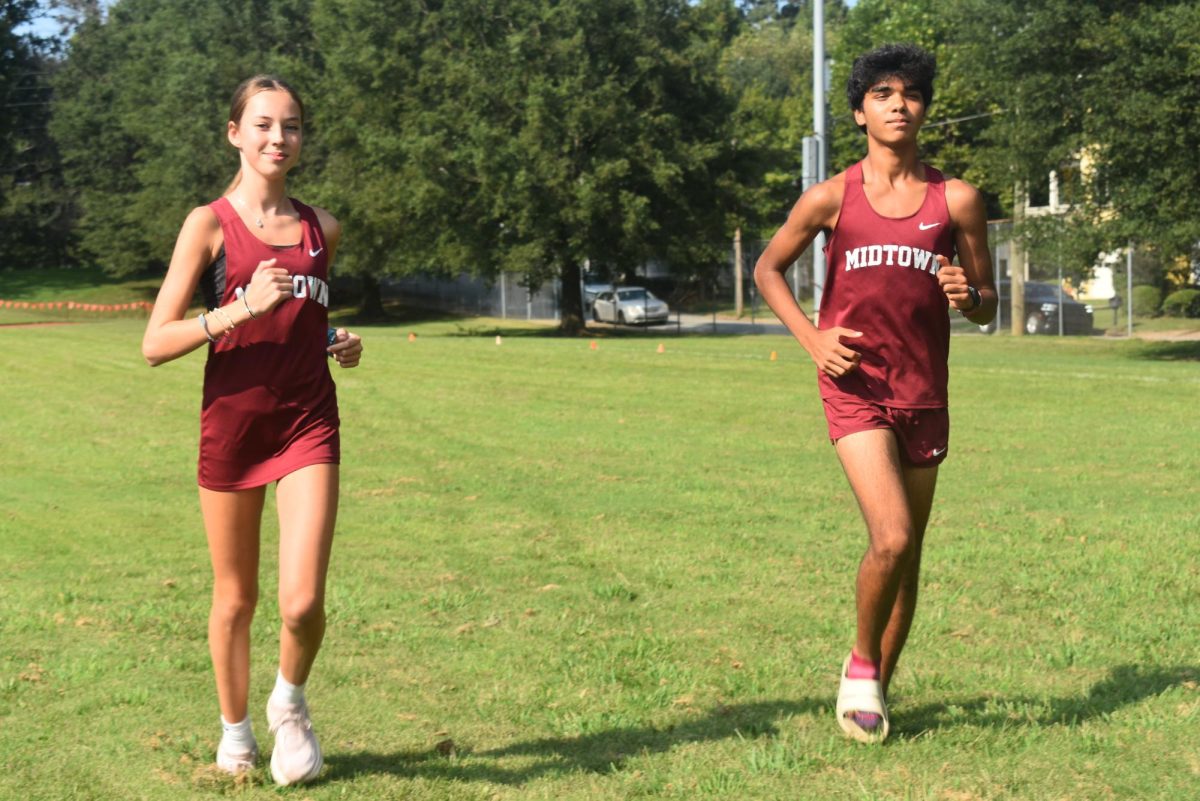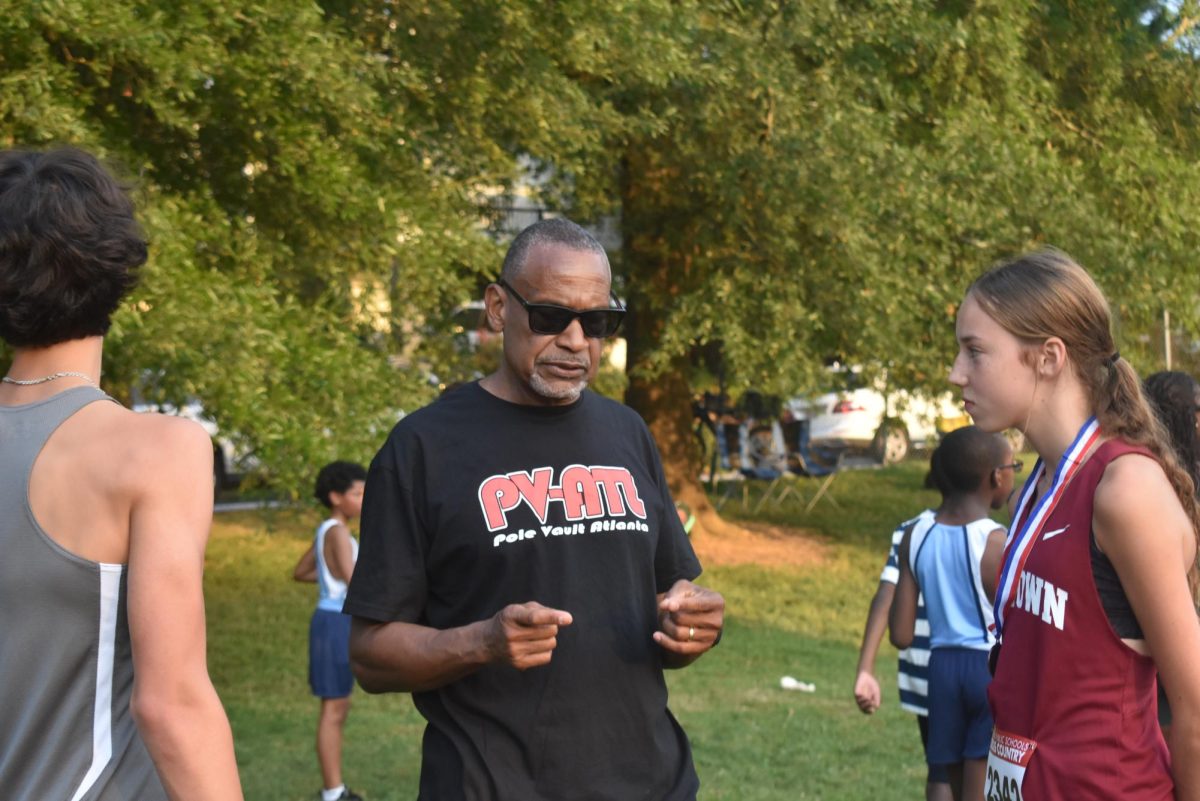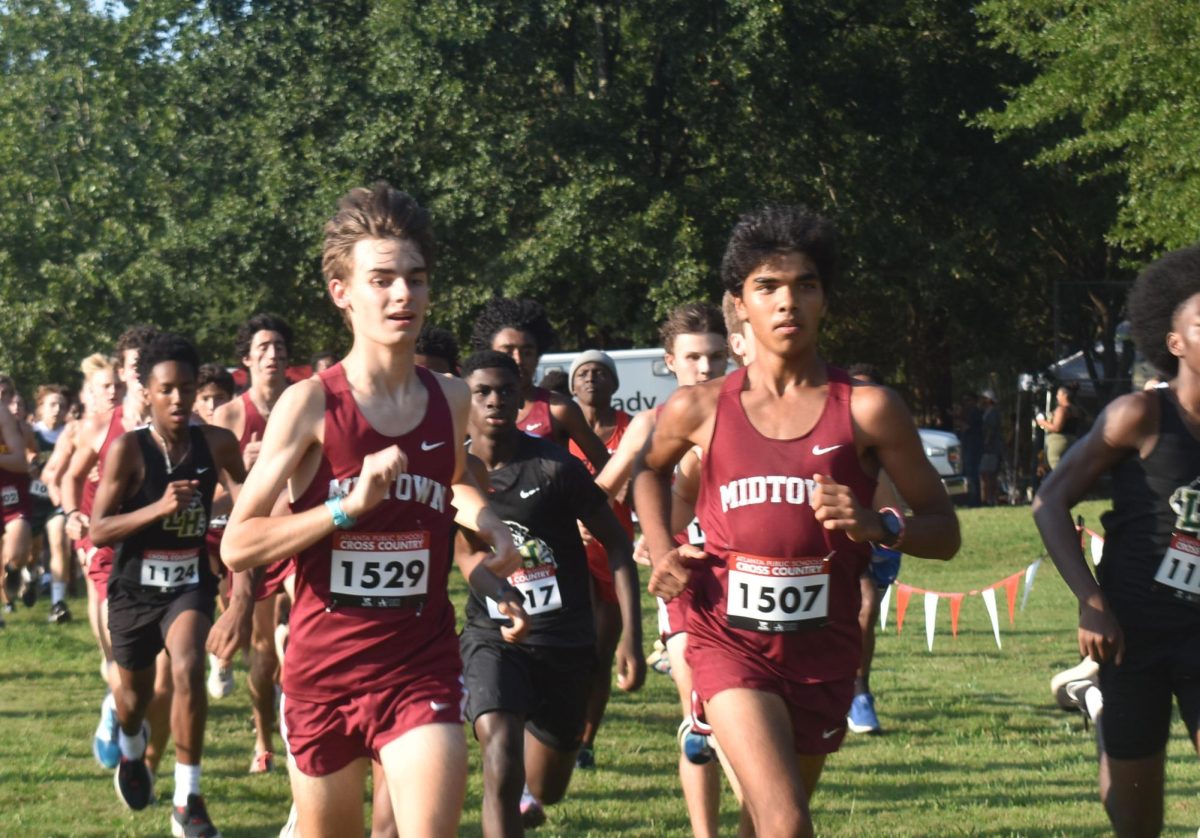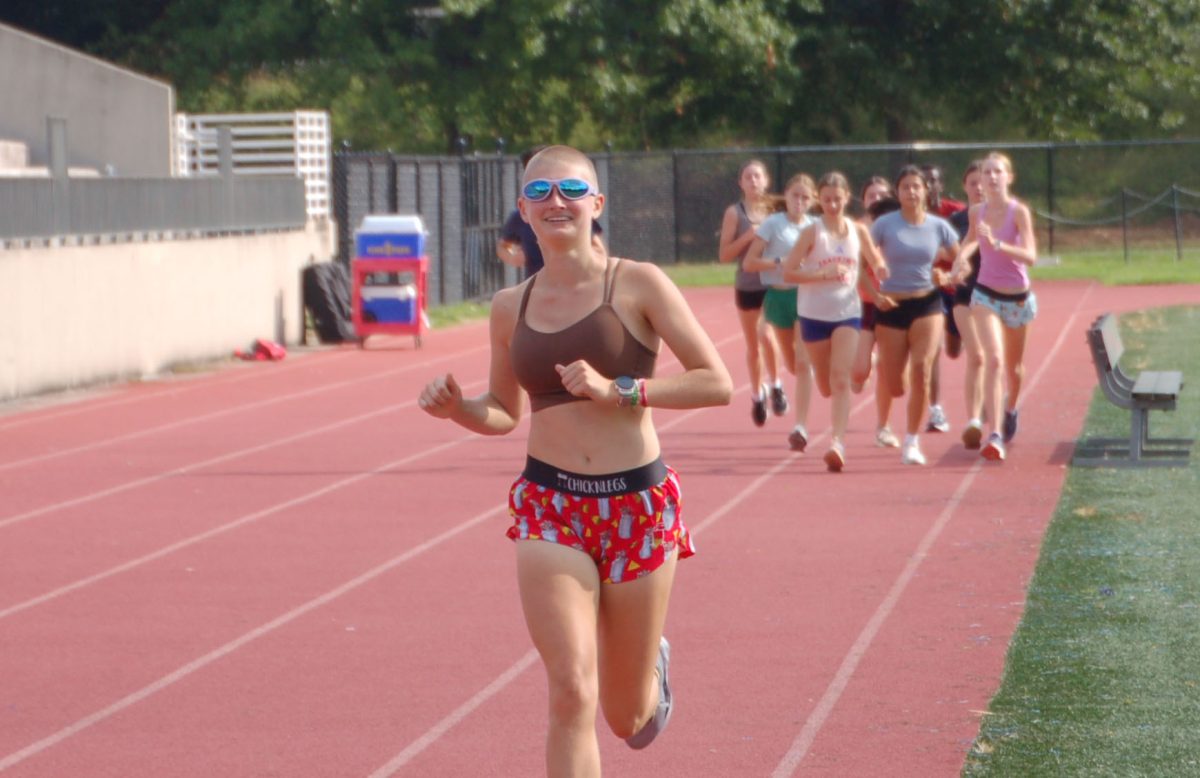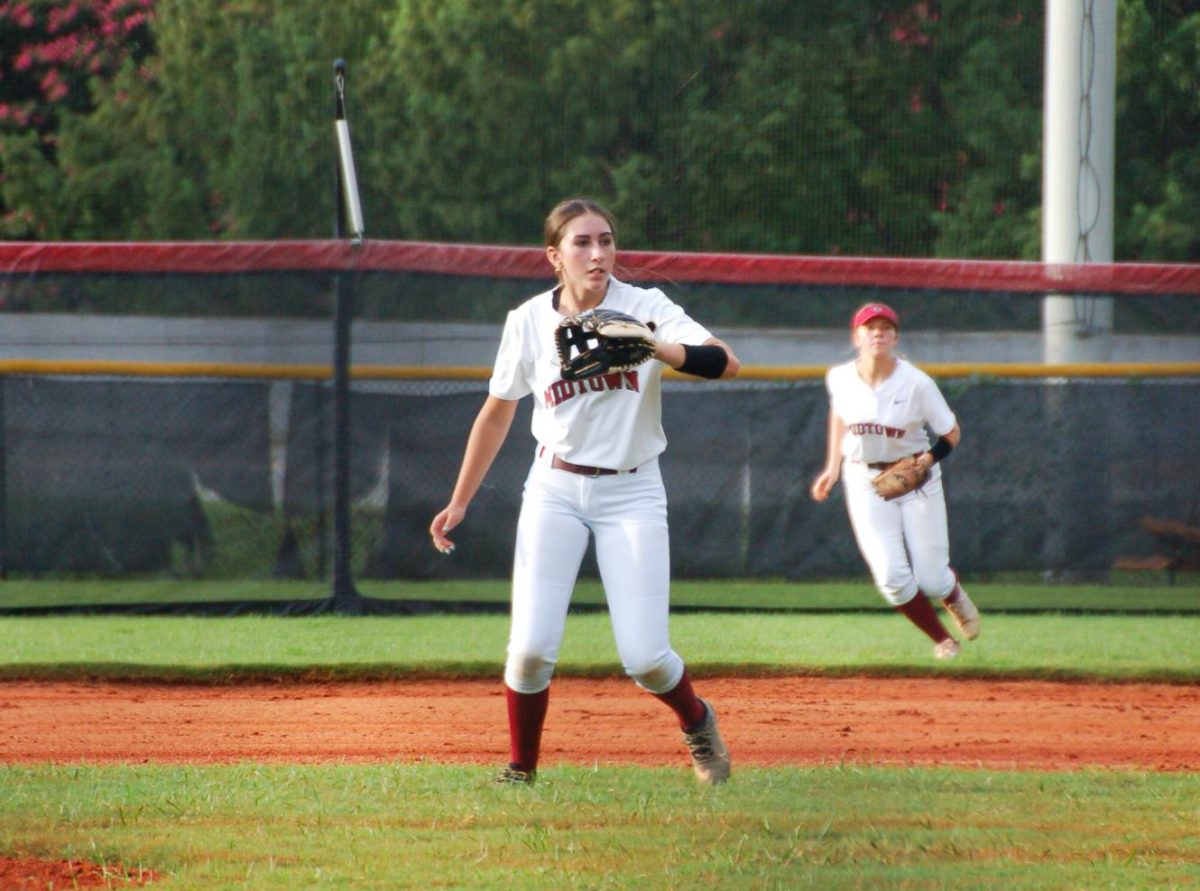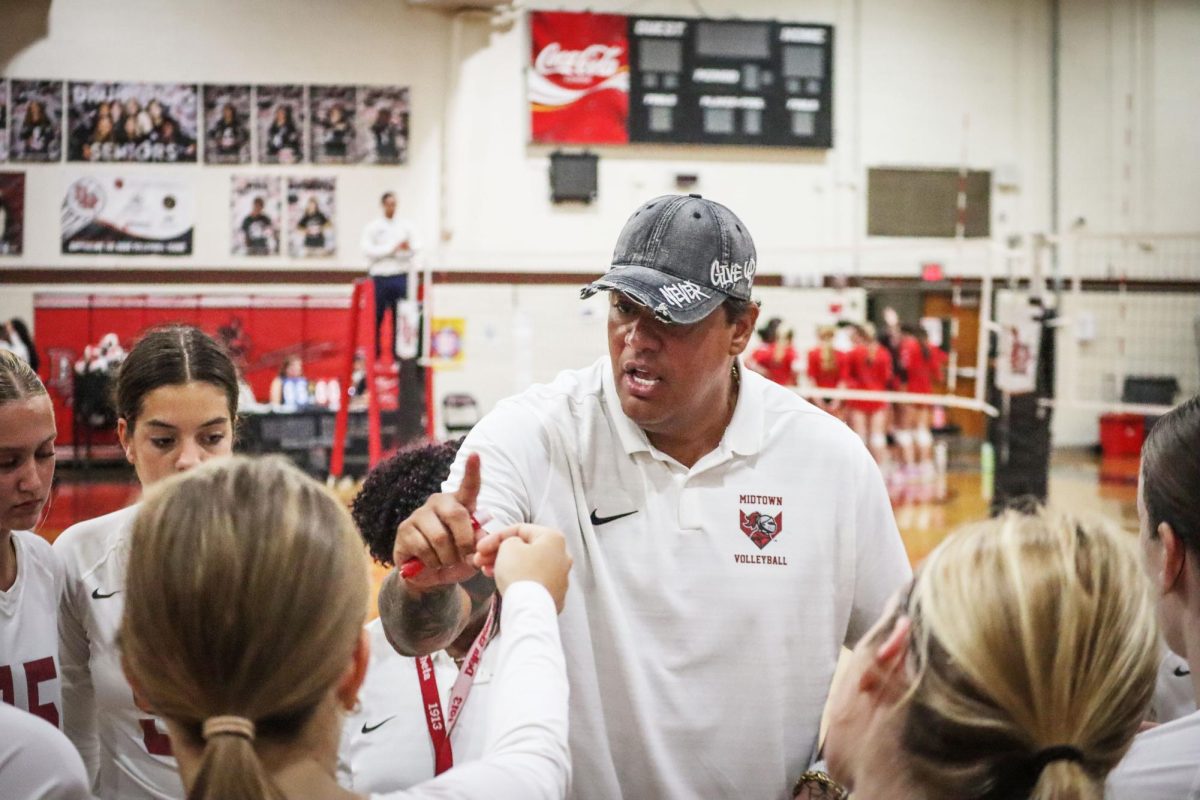By Ben Bizot and Tyler Randall

As fall seasons begin to wrap up, the preparations for spring sports begin, most noticeably with the start of captain’s practices. True to their name, these practices are organized and run by a team’s captains, and lead potential teammates to get in shape in preparation for the upcoming season.
“As a captain, my job is to lead offseason practices with the other captains and inform players about other lacrosse opportunities,” senior lacrosse captain Grace Dines said.
Junior soccer captain James Briggs thinks that practices represent a good way to access new talent from new students to the program. It allows for a relaxed environment, where players can really show their stuff, away from the ever intimidating eyes of the coach.
“It gives the captains a better look of how the player performs away from the pressure of tryouts,” Briggs said.
The importance of captain’s practice extends further than to just new players; it gives returning athletes a chance to get back into midseason form months before the first whistle is blown.
“[Captain’s practices] allow new players to learn more basic concepts, and they allow veteran players to perfect hard concepts,” senior ultimate frisbee captain Mack Hodges said. “They help us to hit the ground running when the season starts.”
Richard Bennett, community soccer coach, finds that with any team, trust and a good understanding of strengths and weaknesses between players are very important to long-term success. The practices give captains an idea as to who is really interested in dedicating their time and effort to the team, which lays a foundation for the growing team chemistry.
“Captain’s practices are important to me in order to find new talent and camaraderie, they get an idea about who is really interested in the program,” Bennett said.
Junior ultimate frisbee captain Maggie Miller tries to mimic the feel of any coach-run practice, although the main goal is to brush away the rust that might have accumulated from a lack of play during the offseason. This is usually best accomplished through a simple possession or scrimmage game that is meant to get everyone involved.
“Scrimmaging helps with increasing skill,” Miller said. “Especially when you have your teammates and captains giving you constructive criticism and encouraging words. Practice doesn’t make perfect, but perfect practice does.”
Bennett thinks that this is where the importance of captains becomes apparent. During the offseason, captain’s practices are the number one priority, and the captains are the ones responsible for the whole operation. They are in charge of communicating the motives that the coach will preach during the season.
“My captains are expected to set the tone for the rest of the season,” Bennett said. “They set the tone for the coach.”
Because coaches aren’t allowed to be directly involved with the team while equipment is out due to GHSA regulations. The rule prohibits the coaches from having firsthand experience with the skill level of players in the off-season. Coaches must wait until tryouts to evaluare players. The coaches have to rely on their captains to report the new talents and levels of dedication they see in players interested in joining the program. With the insight received from the captains, the decision as to who will make the team becomes a lot easier.
“During the preseason and captain’s practice, the captains are supposed to assess potential new talent, as they can communicate directly with the coach,” Bennett said.
This emphasizes both the significance of showing up to captain’s practice for players yearning to make the team and the impact of a captain on a coach’s decision.
“As a captain, I help the coach with choosing the players on the roster, and helping players with any questions about the program in general,” Briggs said. “You could say it’s almost like a second coach.”
Because of how important captains are to the team, coaches often look for certain attributes in players before making them captains. Leadership status can be quickly obtained from a player’s skill, however, a good captain is not only good at their sport, but also good at relaying their expertise and insight to players in order to help them improve.
“I look for leadership skills, experience, guys not afraid to take responsibilities for their actions whether they are right or wrong,” Bennett said. “Guys who can motivate and rally their team through their play and words.”
This is from a coach’s perspective, but the captains hold themselves to a certain standard as well. As the leader of the team, captains often lead through example, and assume a role model status among the rest of the team.
“I have a responsibility to be a leader,” Miller said. “I have to encourage, liven spirits and help players on and off the field. I also have to go to most, if not all, practices and games, and be there earlier. I have commitment to the team that I love and the sport that I love.”

